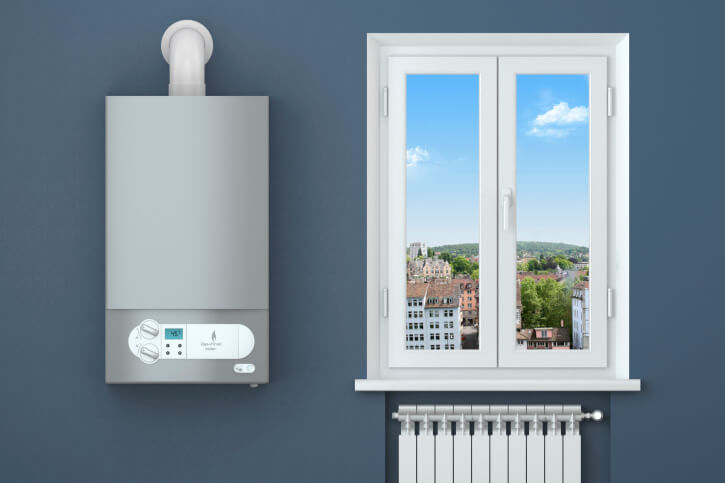People tend to thinks that boilers, furnaces and heat pumps are all the same. Yes, they all supply warm air to a home or business. But, they do differ in their approach and makeups. Let’s take a look at the differences between boilers, furnaces and heat pumps.
Boilers
True to their name, boilers boil water to create heat. Once the water is hot, it flows to the radiators and baseboard heaters throughout your home. This helps to create warmth throughout your home in the winter months. They often run on oil and natural gas. The cost of these fuels can get expensive, especially if you have an old boiler that isn’t efficient. Some use an electronic ignition instead of a pilot light that’s always running. This is the way to go if you are looking for energy savings. There are two types of boilers: steam boilers and hot water boilers. Steam boilers operate at higher temperatures than hot water models. This means that they are less efficient, says Energy.gov.
You’ll pay about $2,000 for a new boiler, more or less depending on the size of the space you need to heat. Installation costs will run you another few thousand. If you opt for a condensing boiler, you’re looking at a cost of more than $5,000.
Furnaces
Furnaces make heat in a different way. They use coils rather than heating up water. They use fuel such as oil to power a motorized blower that delivers air across the coils. This warm air travels through the ductwork in your home and out the vents. Some furnaces are electric. These are usually smaller than natural gas furnaces and aren’t as efficient. Other types include geothermal furnaces and solar-powered furnaces. If you have a gas furnace, you should have a carbon monoxide detector in your home to alert you to any unsafe levels. Carbon monoxide is odorless and colorless. It’s a deadly gas that you may not realize is in your home until it is too late.
Many owners of furnaces must also add a humidifier and air purifier to their units. Expect to pay about $3,500 for furnace installation. Average yearly maintenance costs about $250. This maintenance is crucial to ensure the proper operation of your heating unit.
Heat Pumps
Heat pumps use electricity to transfer heat from a cool area to a warm area. This equipment can increase or decrease temperatures. They are a welcome addition to many homes for both winter and summer. They are only efficient when the temperature outside is above 45 degrees Fahrenheit . Any colder than that and the heat pump won’t work as well. This makes the heat pump a good complement to using fuel-based heat sources in the fall and spring. This is when you need a little extra comfort inside the home.
Heat pumps tend to boost the resale value of a home, as they are energy efficient and help to lower utility bills. A heat pump can cost you between $1500 and $4000 and beyond depending on how large a unit you need.
If you’re in the market for a new heating unit for your home, call Thornton Heating Service for help.

